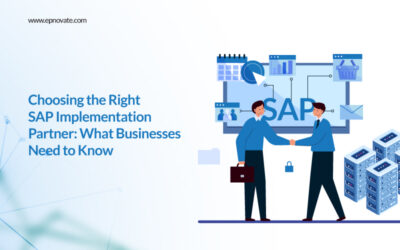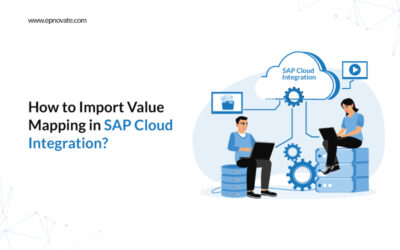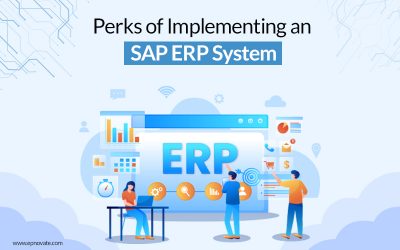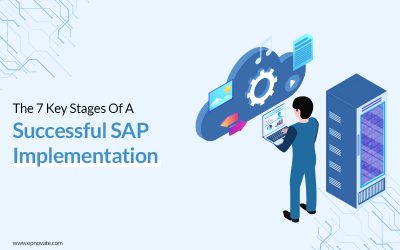SAP Private Cloud Vs. Public Cloud
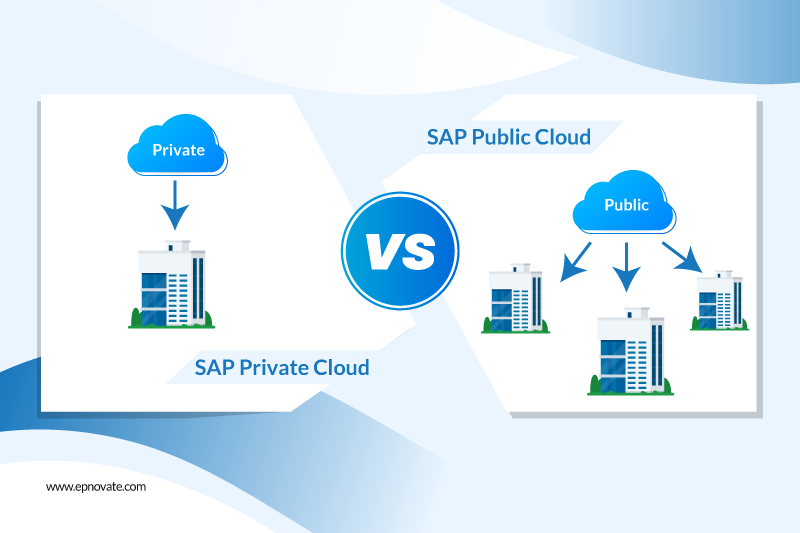
What is the difference between SAP private and public cloud? Both have benefits, but deciding whether taking the time option is right for your business can be challenging. In this article, we’ll break down the key differences between SAP private and public cloud so you can make an informed decision.
S/4 HANA Private Cloud
There are certain factors you need to consider when it comes to SAP private cloud or any cloud.
The most significant difference between private and public clouds is your level of control. With a private cloud, you’re in charge—you decide who gets access, what resources they can use, and how long they have access. It’s viable if you want to keep your data and applications in-house.
Advantages of Private Cloud
Regarding cloud-based solutions, there are two types of clouds: private and public. For the named purpose, a private cloud is for your company only, while a public cloud is open to anyone.
Which one is right for you? That depends on factors such as your company size and IT infrastructure. The most significant advantage of the private cloud is that it’s tailor-made for your organization. You have more control over security, access, and the type of data stored in the cloud. In addition, your company’s data is not shared with other businesses, making it a more secure option.
Why SAP S/4 HANA Private Cloud
The benefits of SAP S/4 HANA Private cloud are:
You have complete control over your data and environment.
There are no licensing fees.
You can scale your deployment as your business grows.
You’re not locked into a long-term contract.
S/4 Hana Public Cloud
If you want to take your SAP implementation to the cloud, S/4 Hana Public Cloud is a great option. This cloud option provides a completely managed cloud service for the SAP Suite of applications and is accessible from anywhere with an internet connection.
The main benefit of this option is that it offers high security and reliability and allows for scalability regarding storage, performance, and customizations. What’s more, with this cloud option, you don’t need to worry about IT hardware costs or maintenance, as all of that is taken care of by SAP.
Advantages of Public Cloud
When it comes to the public cloud, there are a few key advantages over the private cloud. Firstly, it’s less expensive — you don’t need to spend money on buying or renting physical servers or storage. A public cloud provider provides all the infrastructure, so you pay for what you use.
Secondly, public clouds are more flexible. You can quickly scale up your storage and computing resources without investing in more hardware. Plus, since this is all hosted remotely, you don’t have to worry about maintenance or upgrades — that’s taken care of by the provider.
Why SAP S/4 HANA Public Cloud?
If you’re looking for a platform that offers high availability and doesn’t require much maintenance, then SAP S/4 HANA public cloud is perfect. This cloud platform is designed to provide customers with a secure and reliable environment for their business. It also offers increased scalability and flexibility to manage multiple applications, databases, and services from one dashboard.
How to Choose Between SAP Private Cloud and Public Cloud?
Deciding between an SAP private and a public cloud can be daunting, especially if you’re new to the cloud computing world. The ultimate choice depends on your particular business requirements.
First, consider the compliance and security needs of your organization. If you have strongly regulated or sensitive data, a private cloud is the better choice, as you have complete control over the environment’s access.
So Which Is Better?
At this point, it’s clear that these two cloud options have unique advantages and disadvantages. But the answer is more complex when it comes down to which one is better. It depends on the individual user’s needs and budget.
SAP Private Cloud might be the better option for companies that require a high degree of customization and control or need access to restricted data sources. It also offers more scalability and the ability to quickly handle large volumes of data, making it ideal for businesses with complex technical requirements.
Conclusion
When it comes to SAP private cloud and public cloud, the main difference is that a private cloud is for a single organization, while a public cloud is for multiple organizations. Other differences include:
· Control and security: With a private cloud, the organization has more control over who has access to the data and applications, and security features.
· Cost: A private cloud is more expensive to set up and maintain than a public cloud.
Author: Epnovate Technology
Website: https://epnovate.com
Recent Posts
- SAP S/4HANA Greenfield Migration: A Fresh Start to a Modern Digital Core
- SAP Business AI on SAP BTP: Powering Custom Enterprise Intelligence
- SAP TechEd 2025 Showed Agentic AI Is Here — And It’s Reshaping the Future of SAP
- Understanding The Value of RISE with SAP
- Why Codeless AI Automation Is the Key to Scaling SAP Testing
